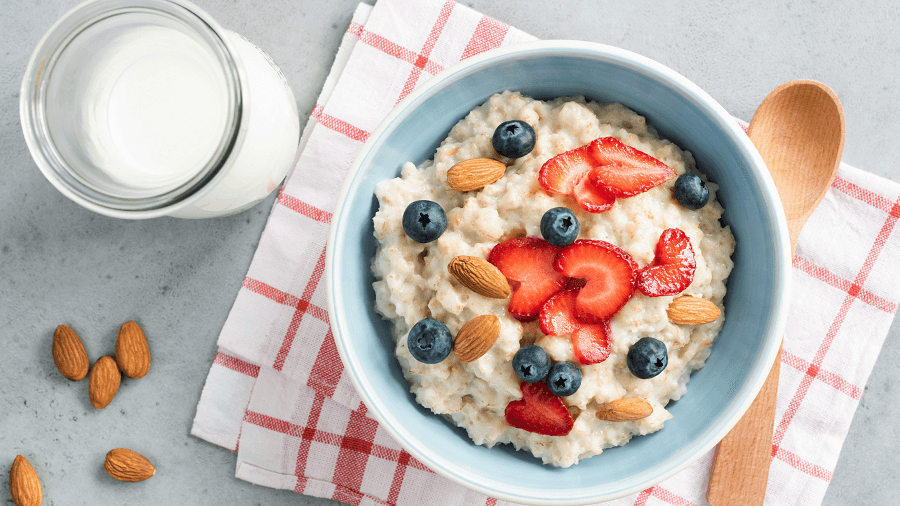
07 Aug Foods w/ Hidden Pesticides
When we do our grocery shopping and look at the nutritional facts and ingredients, we think that’s all there is to double-checking we are ingesting quality food. But, what consumers seem to forget that’s unfortunately NOT mentioned on your boxes or cans are the pesticides farmers use to spray over the ingredients. Thousands of synthetic pesticides are allowed in non-organic agriculture, and many of those are linked to a range of health problems. Let’s talk about foods with hidden pesticides.
Below we will talk about SEVEN foods that are not found on the dirty dozen, and should be purchased organically due to their high residue of glyphosate and other pesticides.
Foods With Hidden Pesticides
Oats
The number one food pesticides hide in are oats. In general, oat foods are filled with pesticides and people flock to this ingredient since it’s considered gluten-free. Foods like Cheerios, Rice Crispies and Chex are all considered gluten-free too which is popular with a certain crowd, but the downside is … you got it … those pesky glyphosates. A good brand to look out for is, “Farmers We Know,” because they make their oats sprouted, making it easy to digest. On top of that, they are glyphosate-free. This company actually tests for glyphosate levels, so you know they play an active and conscious role in what their customers consume.
Coffee
Coffee beans are grown in shady conditions and much of the time covered in pesticides when grown. Glyphosate is widely used in coffee plantations to control weeds. We are talking about your run-of-the-mill standard coffee like Folgers and anything by Nestle (ie. Nescafe and Nespresso). Make sure to get a good organic and local coffee to eliminate environmental toxins from your pick-me-upper.
Protein Powders
A lot of people don’t think about the heavy metal content in protein powders, but they are notorious for carrying pesticides. Make sure to buy organic if you are going to consume protein powders.
Seeds + Seed Oils
We are not just talking about the seeds like sunflower, flaxseed and sesames, we are also talking about the oils themselves. High maximum residue levels of glyphosate are allowed in many seed oils, including sunflower and cottonseed.
Baby Food
Baby food is sometimes something we overlook when thinking aout pesticides since its pureed, but they definitely fall prey to toxins. And in general, avoiding pesticides is especially crucial for babies and children because of the damage they can cause to developing brains. A 2020 study found an increase in IQ loss and intellectual disability in children due to exposure to organophosphates, a common class of pesticides. Make sure again to always buy organic baby food or make your own for him/her to eat.
Apple Products
Apple juice, apple sauce, apple cider. Apples are usually a dirty dozen food but its important to note their byproducts also hold pesticides. Even though they are not the full apple, they too contain hgh concentrates of pesticides. Make sure to buy organic. While organic foods can be exposed to pesticides, clinical trials have found people who moved to organic foods saw “rapid and dramatic reductions” in the levels of pesticides in their urine, a common test for pesticide exposure.
Another thing we have noticed with apple products is the concentrates of mold toxins found in them. This comes from the fact that apple sauce is usually manufactured with apples that have started to go bad and have brown spots on them. These brown spots generally contain patulin, a fairly dangerous mold toxin that tends to be overlooked by many people not focused on mold illness issues.
Legumes
Foods in this category include the dozens of different types of beans, split peas, and lentils, all of which are allowed to have high residue levels of glyphosate. This also means foods made with certain types of beans can be considered high in pesticides. Yes, that means your meditteranean meal drenched in hummus might be covered in toxins.
Of the 43 conventional, or non-organic, chickpea and chickpea-based samples tested by EWG (Environmental Working Group) in 2020, more than 90 percent had detectable levels of glyphosate. Over one-third of the 33 conventional hummus samples exceeded EWG’s health-based benchmark for daily consumption, based on a 60-gram serving of hummus (about four tablespoons). Yikes!
It can be startling to know how there are scores of food not even mentioned on the dirty dozen. We have to be thinking about the foods with hidden pesticides!
There are great ways to work around pesky pesticides however and that is to ALWAYS buy organic. This doesn’t completely eliminate toxins since residue can be picked up from wind erosion blowing soil particles off into fields. However, organic foods are not allowed to be sprayed with glyphosate so that is indeed a start.
If you’re ready to take back your health with holistic living, book a free call with us to help guide you in this healthy living!


